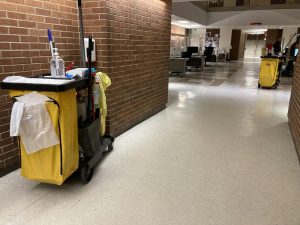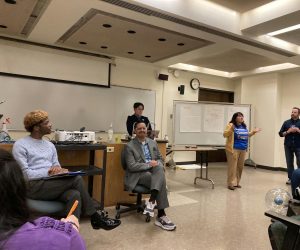Chicago Public Schools: A Self-Destructive System
November 14, 2012
Bold words from Jean-Claude Brizard show little mercy to the current Chicago Public Schools (CPS) system. Misplaced power, according to this resigned CEO of CPS, is the key error of CPS. Power currently reigns in the realm of bureaucracy and administrators, rather than the most active members of a student’s education; the teachers and principals. Brizard claims, in his article from the Chicago Tribune, that effective change will result when principals are empowered, schools are renovated and families are involved. Brizard’s article is short and lacking of detail. He briefly explains how principals enabled with sufficient power to lead their staff are necessary for CPS to become efficient.
His point carries much support considering that school administrators are no longer required to hold a degree in education. For a position as a superintendent, one could have a masters in finance or law. The reason being that a superintendent has a large administration factor; it is more than an education field. A business mind-set towards the education system is not only a major error, but also a major insult to American children. If the education system is a business, then the American children must be the products. Those interacting with the students on a personal level would best gage the reaction of children impacted by policy changes implemented. It is far more difficult to view a student as a product when interacting with them almost daily. If a superintendent or board of education is making the majority of decisions, they will be made with misjudgment. Hire a businessperson to lead the education system and business results will presume. Students will become statistics and data, rather than children longing for a worthwhile future.
In addition to empowered principals to renovate CPS, schools must be reorganized. Schools with high graduation rates must be analyzed and the school’s strategies must then be reinforced and reproduced in other schools. In the same manner, what lacks effectiveness must cease its efforts. Logical reasoning, but rarely followed.
Logical reasoning doesn’t stop with renovating the reproduction of effectiveness; it extends to getting families involved in the lives of their children’s education. Families cannot complain about businesspersons making decisions on education when they are not involved themselves. Brizard seems to keep the same mentality in which people who are involved with the lives of students should be the ones implementing change, not businesspersons who oversee production. It may not be true that all board and superintendents with masters in finance care little of the personal lives of each student, but it is a greater risk than if teachers and principals who interacted with the students frequently held more power.
Brizard may be bold in his claims, but not bold enough. The story needed necessary elaboration. Not only bullet points of change, but also the steps and actions necessary to bring such change to reality. Fortunately, though Brizard resigned as CEO, Brizard has no intent on leaving the position of impacting the academic arena of youth. Change is definitely needed in the CPS system. If Brizard is right, then this change is the placement of power in principals and teachers. Ultimate power to change education left in the hands of businesspersons alone leads only to a self-destructive system.







